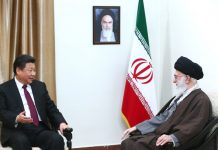
Context
According to the World Health Organization (WHO), the Coronavirus linked pandemic was first reported from the Wuhan city of China, around the end of December 2019. Now it has nearly engulfed the whole world. At the time this article is being written, CNN is reporting total global cases of around 823,479, with deaths standing at 40, 636. In the US, total cases stand at 177,308 and deaths at 3,538 and the numbers are expected to rise.
There is a tendency to view the disruption caused by COVID-19 from the perspective how life and things were. The focus here is to look at the impact of this pandemic on the trajectory of major trends we have been monitoring – particularly as they relate to the global political, economic, and security situation. And all three are interconnected.
If the economic prospects deteriorate, they are bound to influence the political and security state of affairs. And this is the reason why governments all over are under pressure to take action, provide financial stimulus packages and health facilities. This is in addition to the unprecedented steps, such as lockdowns, that state actors are being forced to consider – a damning step that literally translates into economic strangulation. Whether these steps would be enough is yet to be seen. Obviously, viruses do not discriminate between the rich and poor; nonetheless, the consequences for the developed and developing world are bound to be disproportionate.
Analysis
- Political Systems and Governance
In our previous assessments, the weaknesses of the political systems and deteriorating governance have been pointed out. Equal opportunity for all does not exist – and inequality is at all time high. According to Oxfam International, “the world’s richest 1% have more than twice as much wealth as 6.9 billion people.” Moreover, every day 10,000 people die because of lack of access to affordable health care.
The democratic systems are seen as faltering first because the societies are extremely polarized – and developing consensus on critical issues has proven to be acutely difficult. The election results are failing to produce majority and thus the resulting governments are fragile and indecisive.
Additionally, the collusion between money and politics has gravely infected governance – as this means the interests of the powerful are represented at the cost of less affluent, leading to highly biased policies and corruption.
In the developing world the situation is further aggravated when the corrupt political leadership is often supported by the West, and is seen as not catering to the masses and the needs of the youth bulge while disproportionalely spending on defense budgets. This also results in anti-west sentiments and has created an environment that is ripe for revolt. Many of these reasons are also responsible for why religious extremism has spread.
Now, added to this is the shock created by the COVID-19 and the question of how that is likely to impact the already fragile governance and the election systems. The credibility of the governments will be further tested by how they handle the crisis and protect the citizens.
As they develop financial bailout programs, the governments will be divided between bailing out the corporations or the people. One can argue that businesses, and the people they employ, mean one and the same thing. If the corporations that suffer the economic consequence are not saved, how will these companies support their employees during the tough times?
But one can also argue that some of these corporations have been on a profit making roller coaster, and this is an opportune time for them to use the gains to back their employees – rather than using the taxpayer money to be rescued. The governments should instead focus on saving people on the lower stratum that are otherwise unlikely to get any help.
In the US, this argument has a special meaning with the elections approaching towards the end of the year. One of the positives President Trump had going for him has been the economy. However, the Wall Street has been jolted very seriously. According the jobless report that came out in March, 3.3 million people have applied for jobless claims, and the figure is reported to go as high as 47 million by summer.
This has the made his administrations nervous. If they mishandle the crisis and it prolongs, the chances of Trump getting reelected are going to diminish. On the other hand, if he effectively deals with the pandemic and is able to contain it in the short term, then the American economy could possibly be on track to recovery come election time.
However, if the pandemic spreads and the crisis deepens, then the societal fissures are likely to become more serious. As witnessed during the economic crisis of 2008, while the corporations were bailed out, the benefits did not trickle down, and the Middle Class significantly lost its economic prowess. This in turn will also erode the public confidence in the political system and reinforce the argument that the political system is tilted towards favoring the few – at the cost of the many.
- Economic Consequence – Will the System Survive the Shock?
As alluded to earlier, the political, economic, and security health of a nation is intertwined. Financial stability is the backbone on which rests the political and security viability of the state. If the state is unable to provide for the economic wellbeing, and safeguard the citizens, then the social contract between a citizen and the state is threatened to the core.
In previous assessments, it was noted that often the choices made under the laissez faire approach have had an adverse impact on the political and economical governance models connected to the present nation-state structure, especially as it relates to the phenomenon known as Globalization. There has existed a growing alarm that the present models are unsuitable for the future needs, and thus the participants have already been nervous.
Just as the Coronavirus works across borders, so does the interests of the interconnected global markets. All of this raises the question of a value of an asset, who holds it, and who determines the value of that asset. This is amply at display in the current competition over the oil prices playing out between Saudi Arabia and Russia.
As a result of this dynamic, we saw nationalist and popular movements emerging, which often have backed protectionist and anti-immigration policies, and have supported ethnic nationalism. The election of Trump in the US, and Modi in India, are the noteworthy examples.
Now many fear, the policies being adopted to counter the Coronavirus, such as closing of borders, are similar to the ones favored by the ultra-nationalists, and will be used to reorient the otherwise global supply chains.
While the Coronavirus pandemic appears to be not man-made, there is an eerie near ten-years boom and bust cycle repeating itself. The Saving and Loan crisis of the 80s was described as the most significant bank collapse in the US since the Great Depression of 1929. This was followed by the Dotcom Bubble of 2001 and was mainly a result of speculative investing in the Internet related businesses. It was taking place at the same time as 9/11 terrorists attack unfolded in 2001. This was followed by the recession of 2008.
These cycles consistently and disproportionately destroy one set of businesses while benefiting the others. In classic business terms, the boom and bust cycle is explained as natural phases of market expansion and contraction, and as a characteristic of capitalistic system. However, in almost all of the bust scenarios, the taxpayer money was ultimately used to bail out the culprits whose rash activities crashed the markets in the first place.
For instance, in the 2008 recession, it was the behavior of the financial and banking institutions that caused the crisis – but then were deemed ‘too big to fail’ and subsequently bailed out at the taxpayers’ expense. It’s kind of a double whammy; first people loose their market investments – and then have to pay to save the bad players. Thus the question becomes, how many times can one repeat this disparaging cycle before eventually bankrupting the taxpayers and by extension, the state?
- Security – From War on Terror to War Against Coronavirus
Strong economy is the lifeline on which depends both the political and security situation. Without sound fiscal health, neither good governance can be provided – nor security can be established. So while the global economic system was already under stress, Coronavirus has added to the global woes. If the highly indebted governments cannot generate taxes because the economy is in a shut down, how will the system continue to function? And this is why we are confronted with a scary situation of a system collapse, especially if the situation prevails for an extended time.
Short Term Scenario
If matters can be brought under control in two to three months, then the chances of normalcy returning are higher in the developed world than the developing. It is just because the financial systems of the developed world have a greater tolerance and buffer for shocks. However, system-level impacts will still linger for considerable time – and so will be the questions regarding hard choices that will have to be made.
Long Term Scenario
However, if the situation extends for a period longer than 3 months, a direr situation would be confronted. It would lead to stark choices regarding where the government spending would have to be cut – so that it can be beefed up for social programs. And the obvious area to be addressed would be the defense and security related funding. Moreover, it would lead to tensions between the state and the federal levels of government on budgeting issues. If political activities cannot be held, then even the elections would have to be postponed.
In the US, these fissures are already beginning to emerge, but the debate has not shifted towards defense spending. However, US was already in the process of withdrawing from Afghanistan, and drawing down its presence in Iraq. And it has also been pressuring the NATO members to increase their defense spending.
Ultimately the nations of the world would have to address a decisive question: how to confront the Coronavirus while the humans continue to exploit and fight each other. While this may require a more global collaboration, the trends are more in the opposite direction presently. The need of the day is to declare a moratorium on all human conflict – to deal with COVID-19.



